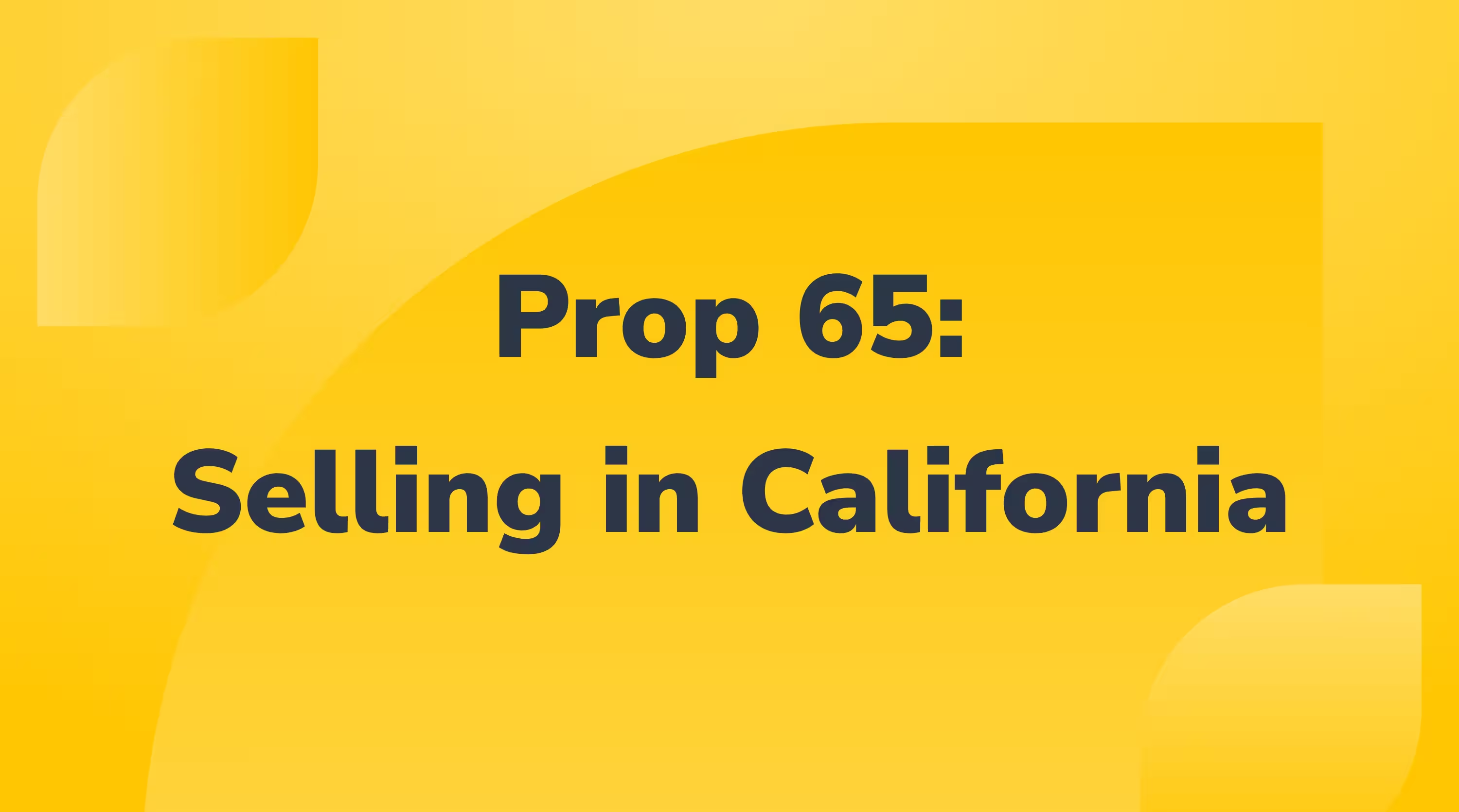A Seller's Guide to Prop 65 Compliance for Selling in California

If you sell products in the United States, you have almost certainly seen the ubiquitous warning label: "This product can expose you to chemicals known to the State of California to cause cancer..." This is the result of Proposition 65, a unique Californian law with a major impact on Amazon sellers worldwide.
Failing to comply with Prop 65 can lead to hefty fines and legal action, even if your business is based thousands of miles away. This guide will demystify this complex regulation, explaining what it is, who needs to comply, and how to add the necessary warnings to your Amazon listings.
1. What is Proposition 65?
Proposition 65, officially the "Safe Drinking Water and Toxic Enforcement Act of 1986," is a California "right-to-know" law. Its purpose is to ensure California residents are informed about potential exposure to chemicals that the state has identified as causing cancer, birth defects, or other reproductive harm.
- The Chemical List: The state maintains an official list of over 900 of these chemicals, which includes common materials like lead, cadmium, phthalates (used to soften plastics), and BPA.
- A "Right-to-Know" Law, Not a Ban: This is a critical distinction. Prop 65 does not ban any products or chemicals. It simply requires that a business provide a "clear and reasonable" warning before knowingly exposing anyone to a listed chemical above a certain "safe harbor" level.
The burden of proof is on the business to prove its product is safe. Due to the high cost of this testing and the legal risks, most businesses choose to provide a warning if their product might contain a listed chemical.
2. Who Needs to Comply?
The law applies to any business with 10 or more employees that sells products to consumers in California.
For Amazon sellers, this means if you sell on Amazon.com, you must comply, regardless of where your business is located. Your products are available for sale to the 40 million residents of California, so you are subject to the law. Amazon requires all sellers to certify that their products comply with all applicable laws, including Prop 65.
3. How to Comply: A Step-by-Step Approach
- Assess Your Product: The first step is to determine if your product contains any of the 900+ chemicals on the Prop 65 list. The best way to do this is to contact your manufacturer or supplier and request a full Bill of Materials (BOM) or a chemical composition report.
- Consider Laboratory Testing: If your supplier cannot provide clear information, the only way to be certain is to have your product tested by a third-party laboratory that specializes in Prop 65 analysis. This is the most robust way to manage your legal risk.
- Determine if a Warning is Needed: If a listed chemical is present, you must provide a warning unless you can prove that the exposure level is below the state's "safe harbor" thresholds. As this is often a complex and expensive process, the most common and safest business practice is to provide the warning.
4. Adding Prop 65 Warnings to Your Amazon Listing
Amazon has a built-in tool in Seller Central to help you comply.
- Find the Compliance Tab: When you create or edit a product listing, go to the "Compliance" tab.
- Add the Warning: You will see a field for "California Proposition 65." Here you can select "Yes" and then choose the specific type of warning required from a dropdown menu (e.g., a warning for "cancer," "reproductive harm," or "both," and list the specific chemical(s) if known).
- Automatic Display: Once you save this information, Amazon will automatically display the full, legally compliant warning text on your product detail page for all customers to see before they make a purchase.
It is also best practice to include this warning on your product's physical packaging.
Navigating the complex web of US compliance, from federal standards to state-specific laws like Prop 65, is a major challenge. As a full-service agency, Sitruna helps you manage these hurdles, connecting you with testing labs and legal experts to ensure your brand is protected.
Useful Resources
- Official California Proposition 65 Website
- The Official Proposition 65 Chemical List
- Amazon Seller Central: Proposition 65 Help Page
Conclusion: A Necessary Step for US Market Access
Prop 65 compliance is an essential cost of doing business for nearly any brand selling physical goods in the United States. By being proactive in assessing your products and transparent in applying the required warnings on your Amazon listings, you can mitigate your legal risk and continue to safely sell to customers in the world's largest consumer market.
Need help building a compliant US market-entry strategy? Schedule a free discovery call with the Sitruna team at www.sitruna.com/meet to get started.



